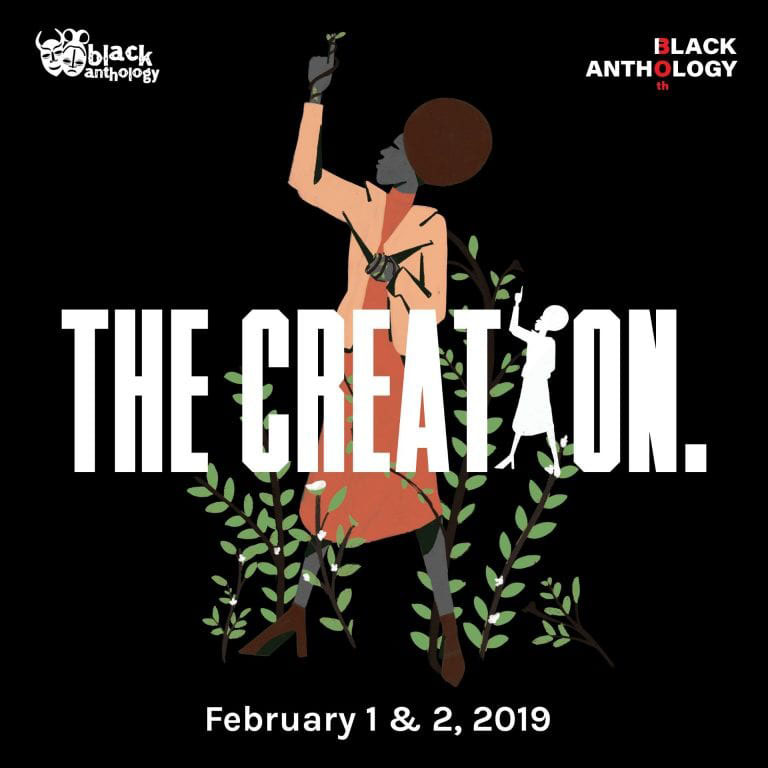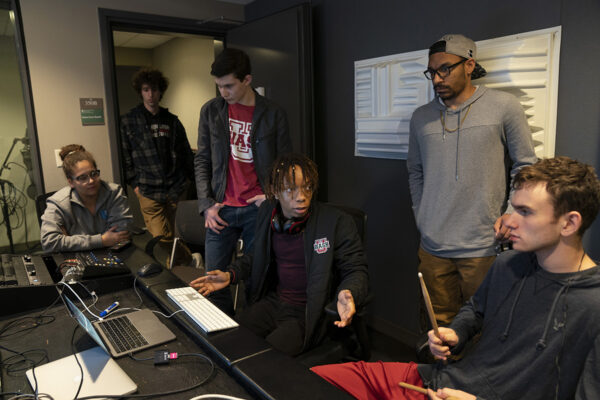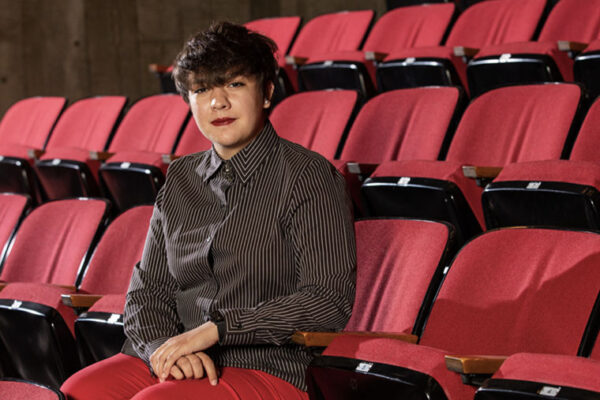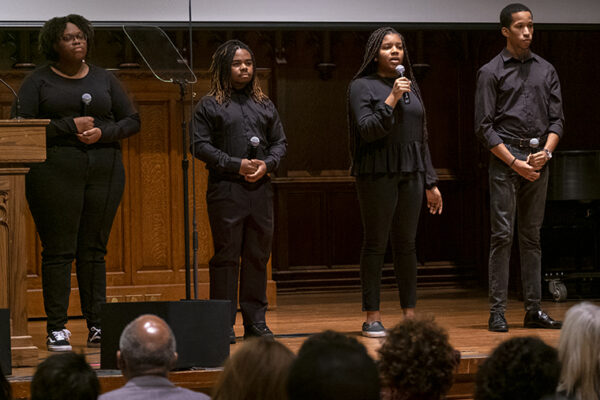
For three decades, Black Anthology has brought the experience of African-American students to the stage at Washington University in St. Louis. It’s a legacy that both inspires and intimidates Ebby Offord, the production’s three-time director.
“Black Anthology has meant so much to so many for so long,” said Offord, a senior studying drama and writing in Arts & Sciences. “We hear from alums all of the time who tell us that Black Anthology is as important to them today as it was when they were our age. That tells me how lucky I am to be part of an organization like this and how transformative art can be.”
Black Anthology returns Feb. 1 and 2 to Edison Theatre with its 30th anniversary show, “The Creation,” which is inspired by James Weldon Johnson’s Harlem Renaissance poem of the same name. Here, Offord shares what’s new this year and how Black Anthology has changed her life.
What can people expect this year?
Unlike in past years, where we follow one or two characters, this year we follow a group to create a collective experience. It has been a lot of fun to have so many voices and to see the actors bring their own personalities to their roles. It also better reflects our community. By making it ensemble, the audience can better recognize themselves on stage and share in the experience — and it really is that, not a play but an experience.

Black Anthology is the university’s oldest cultural show. Why does it still matter?
It is important to give students a place where they can make voices heard, especially black students at a predominantly white institution. There is power in getting into a room with people and saying, “Listen to me.” Often audiences walk away and say, “How did you get into my head like that?” Or “How did you know I was living with this?” One of the most amazing parts of writing the play (“Black and Blue”) my sophomore year was people coming up to me and saying, “I’ve never been able say how I felt about this, but you did.” That makes all of the terror of performing on stage worth it.
How has your participating in Black Anthology changed you experience at Washington University?
I had never written a play before I wrote “Black and Blue.” It actually inspired me to take playwriting. That was a huge leap for me because I was only a fiction writer at the time. Being in BA also has really impacted how I interact with the other communities I belong to. In a lot of spaces, I’m the only person of color, and BA has given me the strength to say, “Hey, no. I’m not settling for me being the only one in the room.” But most of all, it has affirmed my passion for art and culture. Black Anthology has always used many forms of expression — dance, slam poetry, song — to connect with everybody on our campus.


